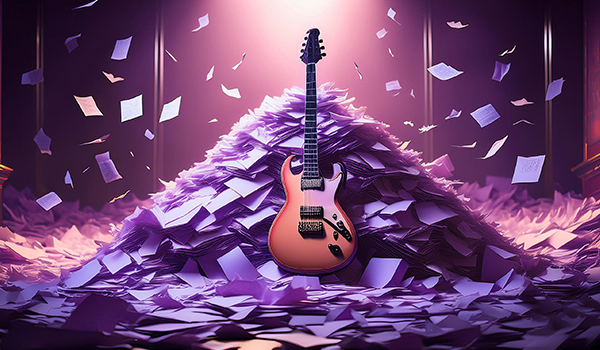Why songwriters need to understand and implement song splits to protect their rights and earnings
As a songwriter, understanding the nuances of your rights and earnings is key to succeeding in the music industry. Songwriters leave money on the table all the time, simply because they haven't grasped how royalties work and the importance of having the right agreements in place.
In this article we'll delve into song split agreements, royalties, and making sure you maximize your songwriting income.
Understanding Song Splits and Split Sheets
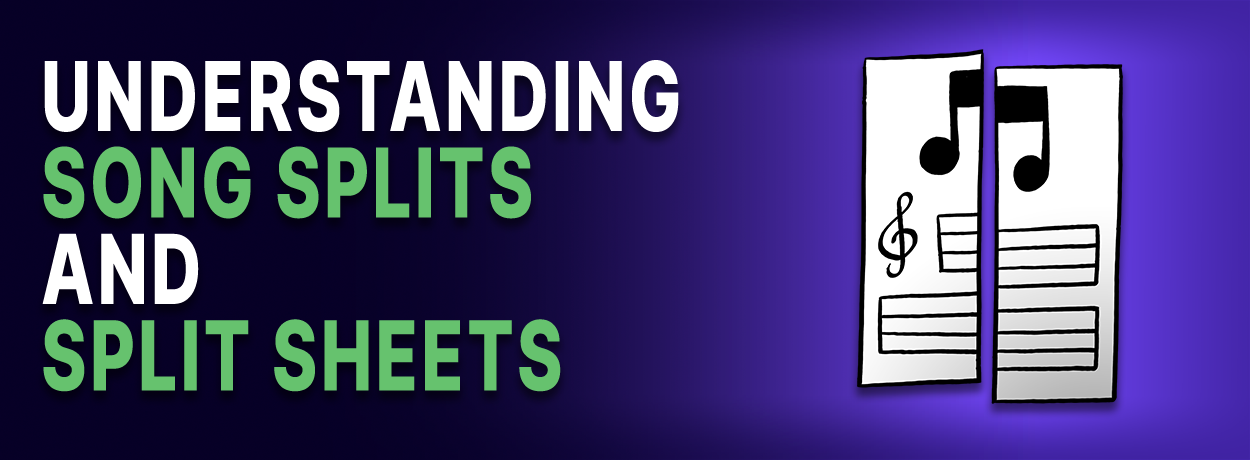
One of the most critical documents every songwriter should be aware of is the song split agreement, also known as a "split sheet," or "songwriter split sheet." This agreement specifies how much of a song each contributor owns based on their contributions to it. You always want to have these splits down in writing, even more so if one writer only adds a few minor elements to a song.
For instance, a collaborator might add just a few words to the lyrics or some catchy phrase like “oh baby,” but believe their contribution warrants a significant share of the song’s ownership. Without a song split agreement, they could legally claim as much ownership as you have - and be entitled to it. Under U.S. copyright law, co-written songs are automatically divided equally among the writers, unless the songwriters have an agreement saying otherwise.
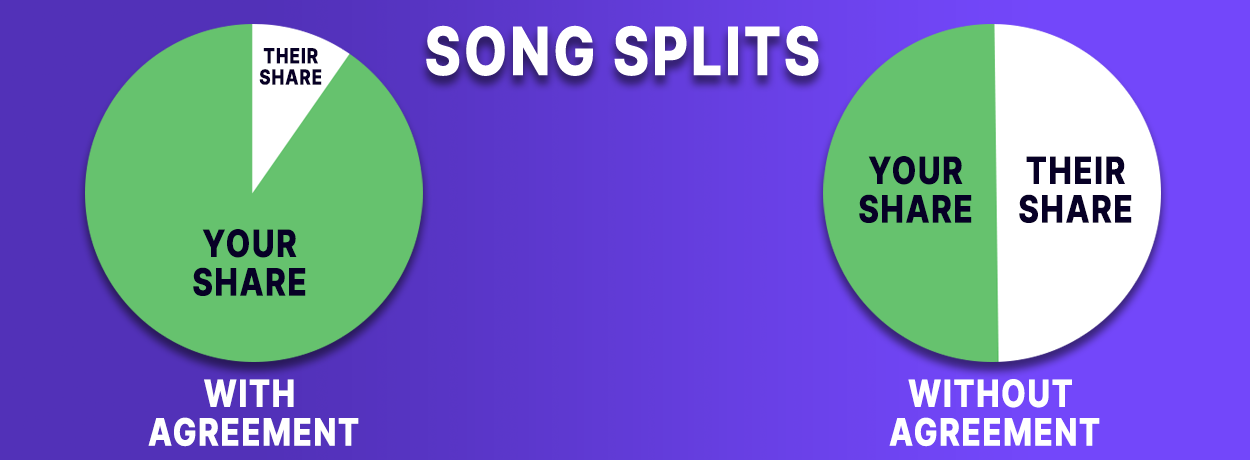
This is one reason why it's so key to outline and establish each writer's contributions and subsequent song ownership clearly from the beginning. A songwriter split sheet is essential for managing collaborations between artists, as it ensures that each contributor is appropriately credited and paid for their contributions.
Understanding Song Ownership and Royalties
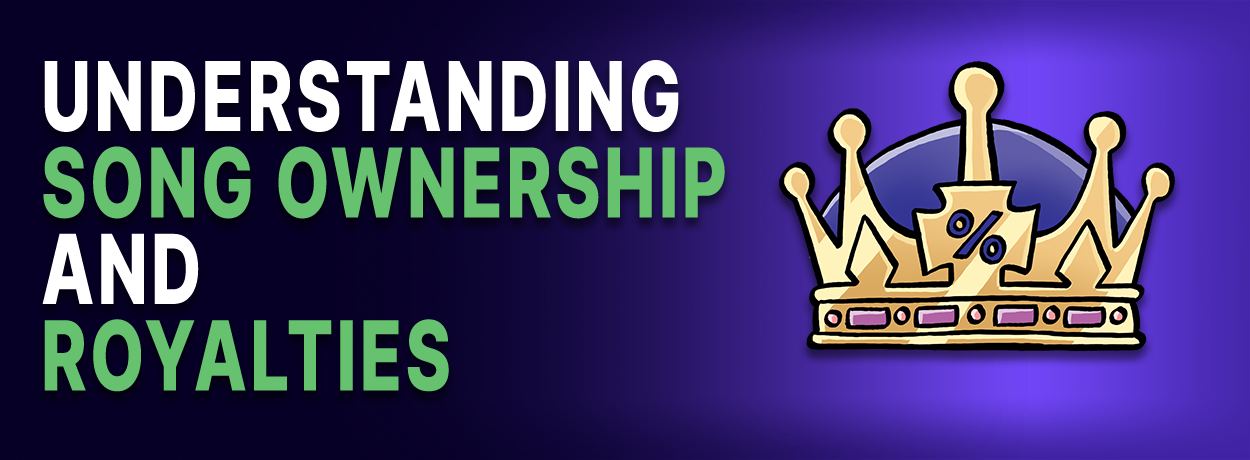
Depending on your circumstances, navigating the world of song ownership and royalties might be uncomfortable at times. After all, who feels like negotiating ownership percentages after a productive songwriting session? But it’s still important for songwriters to come to an agreement in writing, so they can protect their rights and be paid fairly. Many songwriters like to finalize this agreement as soon as they've finished writing the song, while the writing process is still fresh in everyone's mind.
Understanding Song Ownership and Royalties
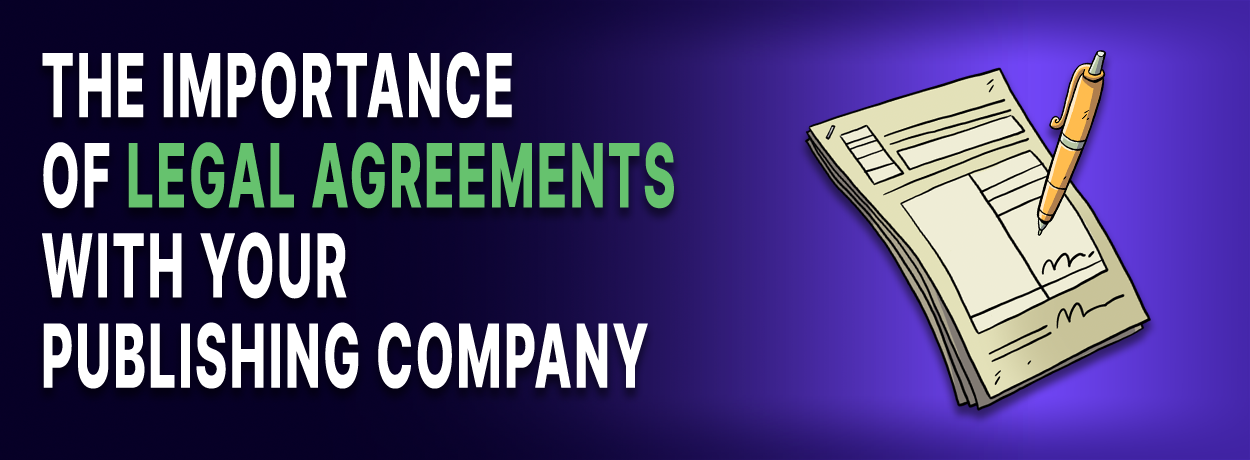
Neglecting to have legal agreements in place can lead to disputes down the line. If you don’t specify ownership percentages, you could end up in a situation where someone who contributed minimally has an equal claim to your song. That's unfair, but it's the default solution and a big reason why you want to have precise ownership percentages down in writing.
If contributions aren’t documented, a contributor can make a claim to a share of the song’s revenue when they should really be getting little to nothing, claiming an amount that's greater than they should be entitled to. Clearly defined split percentages are the answer to avoiding costly legal disputes and ensuring fair compensation among all contributors.
It’s not just about protecting your financial interests; it’s also about safeguarding your creative integrity. Having a well-defined song split agreement allows you to maintain control over your work, on top of ensuring that everyone involved is fairly compensated.
Creating a Song Split Agreement
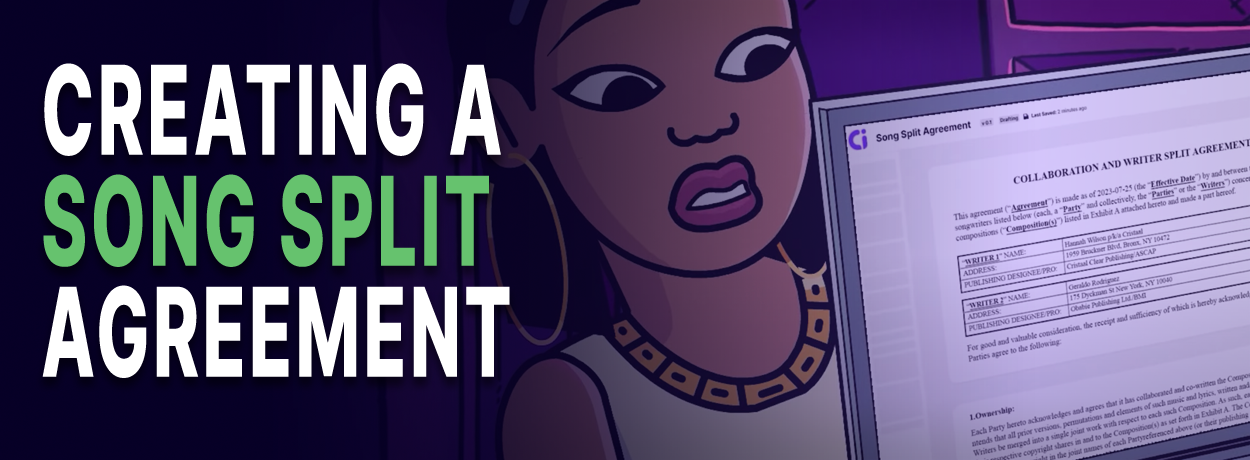
A well-crafted song split agreement outlines the ownership percentages for each contributor, helping to prevent disputes and clarify each person’s share of the royalties.
Types of Performance Royalties Songwriters Should Know
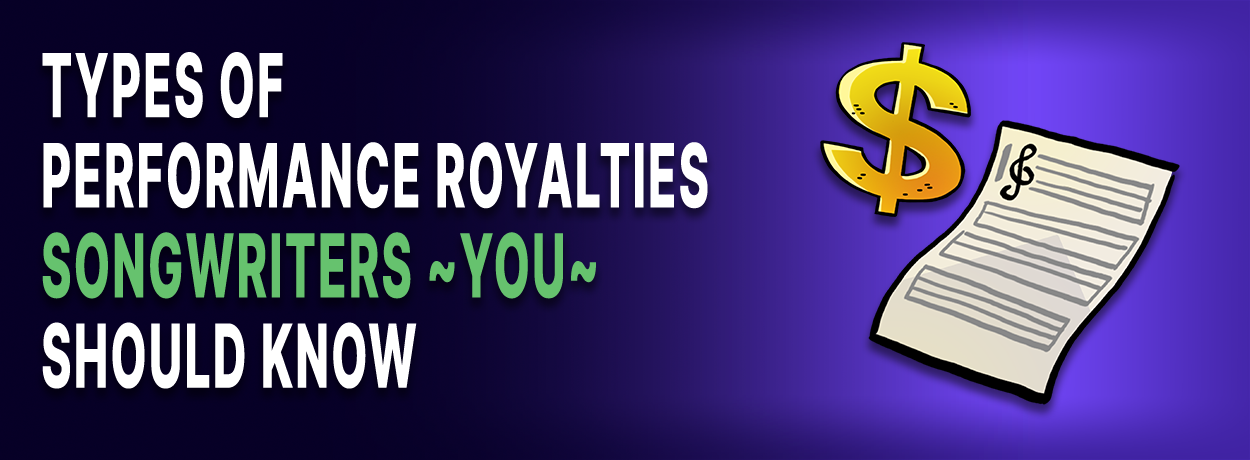
Understanding the different types of royalties you can earn as a songwriter is critical to understanding how to collect that income. Here are some key royalty categories for songwriters:

Performance Royalties: These are generated whenever your song is played in public—whether on the radio, in a club, or during a live performance. Performance rights organizations (PROs) like ASCAP, BMI, SESAC and AllTrack collect these royalties on your behalf.

Mechanical Royalties: These are earned when your music is reproduced, such as when someone buys a physical copy of your album or streams your song on a digital platform. It’s essential to register your music with the Harry Fox Agency or Mechanical Licensing Collective (MLC) to properly collect these royalties.

Synchronization Royalties: If your music is used in films, TV shows, or commercials, you can earn sync fees. These licenses are negotiated separately and can be quite lucrative.
Negotiating Better Deals

Another key aspect of maximizing your earnings is negotiating better deals - even when it comes to dividing song ownership. Here are a few tips on doing this regardless of the specific agreement being negotiated:
Understand Your Worth: Before entering negotiations, know the value of your contributions and be prepared to advocate for yourself.
Be Clear About Expectations: Discuss the terms of collaboration upfront to avoid misunderstandings later on. This includes ownership percentages, payment schedules, and rights to future use.
Seek Professional Guidance: If negotiations feel overwhelming, consider hiring a music attorney or an experienced manager who can help you navigate the complexities of song split agreements and other contract discussions.
Resources for Songwriters
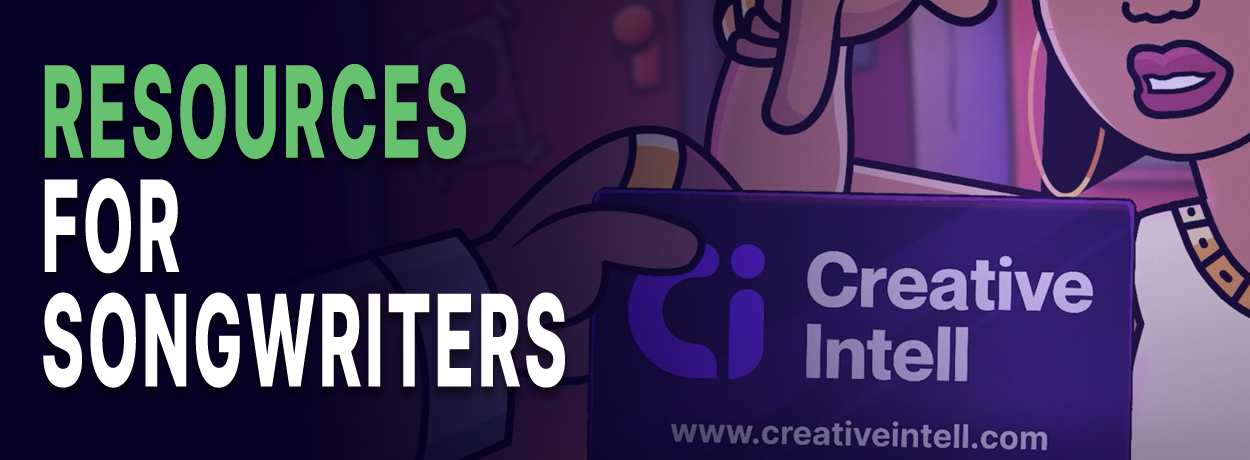
There are many good resources available to help songwriters understand and navigate their rights:
Creative Intell: This platform offers a wealth of information and tools for songwriters and producers to help you maximize your earnings while protecting yourself legally. They provide educational content, webinars, contract templates, personal guidance and industry insights that can prove invaluable.
Workshops and Seminars: Look for and attend workshops that focus on songwriting, royalties, and the music business in general. Networking with other songwriters and music professionals can also help you gain insights, songwriting tricks, and tips.
Books and Online Courses: Consider reading books on music publishing and royalties or enrolling in online courses that cover music industry topics.
Final Thoughts
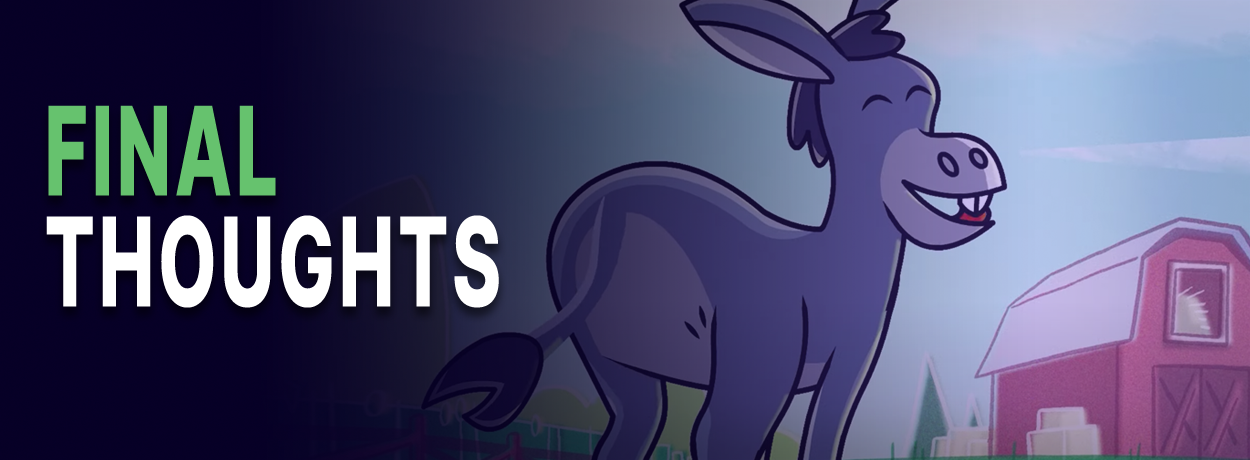
As a songwriter, you need to equip yourself with the knowledge and tools needed to protect your interests and maximize your earnings. From understanding song splits and royalties to negotiating better deals, the more informed you are, the more successful you can be.
For more resources and tools tailored for songwriters, visit Creative Intell. Remember to stay proactive in your career, and don’t hesitate to seek help when needed!
Frequently Asked Questions on Song Split Agreements and Royalty Splits.
How do you split ownership of a song?
Song ownership is typically split based on each contributor's creative input. This is negotiated between the songwriters/producers and documented in a split sheet agreement. Common splits include equal shares (e.g. 50/50 or 33/33/33) or percentages based on contribution (e.g. 50/20/30). Traditionally, lyrics have been considered to be worth 50% of a song, but there is no set rule for this formula.
How do song splits work?
Song splits determine what percentage of ownership and royalties each contributor to the song receives. The splits are agreed upon by the creators and documented in a split sheet. When royalties are collected, they are distributed according to these percentages.
How are royalties split on a song?
Royalties are split based on the agreed ownership percentages in the split sheet. For example, if the split is 60/40, one writer would receive 60% of royalties and the other 40%.
How many splits should a producer get?
Producer splits vary widely depending on their contribution and negotiation. In hip hop and pop, the production (beats and foundation) is often considered 50% and goes to the producer and co-producers, with the remaining portion going to the artist and any other co-writers.
What is the 80/20 rule in songwriting?
The 80/20 rule suggests focusing on the 20% of songwriting elements that produce 80% of the impact. For splits, it's not a standard percentage but rather a principle of prioritizing key creative contributions.
How to determine songwriting credits?
Songwriting credits are determined by identifying who contributed to creating the composition. This includes writing lyrics, melody, chord progressions, and arrangement. Credits should be discussed and agreed upon by all contributors and cemented in a song split agreement.
Does a producer get 50% of a song?
A producer does not automatically get 50% of a song. Their percentage depends on their contribution and negotiation. While 50% is possible if they significantly contributed to writing, more common ranges are 15-25% for production only, or up to 50% if they wrote most of the track
What is song administration and how is it established in a song split agreement?
Song administration refers to the management of a musical composition's rights and royalties. It involves registering the song with performing rights organizations (PROs), collecting royalties, and ensuring proper distribution of earnings to all rights holders. In a song split agreement, administration is established by:
-
Clearly defining ownership percentages for each contributor
-
Specifying the administrators or publishing companies involved
-
Including each party's IPI (Interested Parties Information) number and PRO affiliation
-
Outlining how royalties will be collected and distributed
The split agreement should detail who will handle the administrative duties, whether it's one of the songwriters, a designated publishing company, or a third-party administrator. This ensures that the song is properly registered, royalties are collected efficiently, and all contributors receive their agreed-upon share of the earnings. It also simplifies the process of licensing the song, enabling only one signature to ratify any potential synch etc deals for the composition.
How do you split royalties for a remix?
Typically, remixers are paid a flat fee or receive a percentage of royalties, usually around 10-20% of the master recording royalties. The original songwriters retain their full share of the composition royalties. Always negotiate and document the agreement before starting work on the remix.
What's the difference between songwriting splits and master recording splits?
Songwriting splits refer to the ownership of the composition (lyrics and melody), while master recording splits relate to the ownership of the specific recorded version of the song. Songwriters share in composition royalties, while recording artists, or their record label, typically own their master recordings in full.
Do session musicians get songwriting splits?
Generally, session musicians don't receive songwriting splits unless they contribute significantly to the composition itself. Their payment is usually a flat fee or hourly rate for their performance. However, if a session musician adds a notable melodic or lyrical element, they may negotiate for a songwriting share.
How do you handle splits when someone contributes only a small part to a song?
Even small contributions can be valuable. Consider offering a smaller percentage (e.g., 5-10%) for minor contributions. Always discuss and agree on splits before finalizing the song to avoid conflicts later.
Can songwriting splits change after a song is released?
While it's possible to change splits after release, it's complicated and can lead to disputes. It's best to finalize splits before release. If changes are necessary, all parties must agree, and the split sheet and registrations with PROs must be updated.
How do you split royalties for a sample used in a song?
When using a sample, you typically need to negotiate with the original copyright holders. They may request a percentage of the new song's royalties (often 15-50%) or a flat fee. The remaining percentage is then split among the new song's writers.
.
Disclaimer: Creative Intell is not affiliated, nor associated in any way, with any third parties referenced herein, nor their respective goods or services. Any and all third-party trade names, trademarks, and/or service marks referenced are used for informational purposes only, and are the exclusive property of their respective trademark owners.
Tags:





